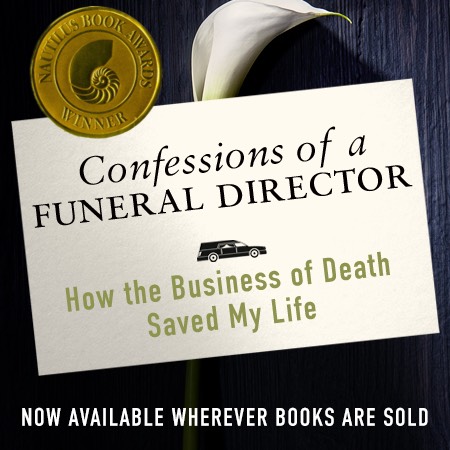Active Remembering
You don’t have to walk away from your dead
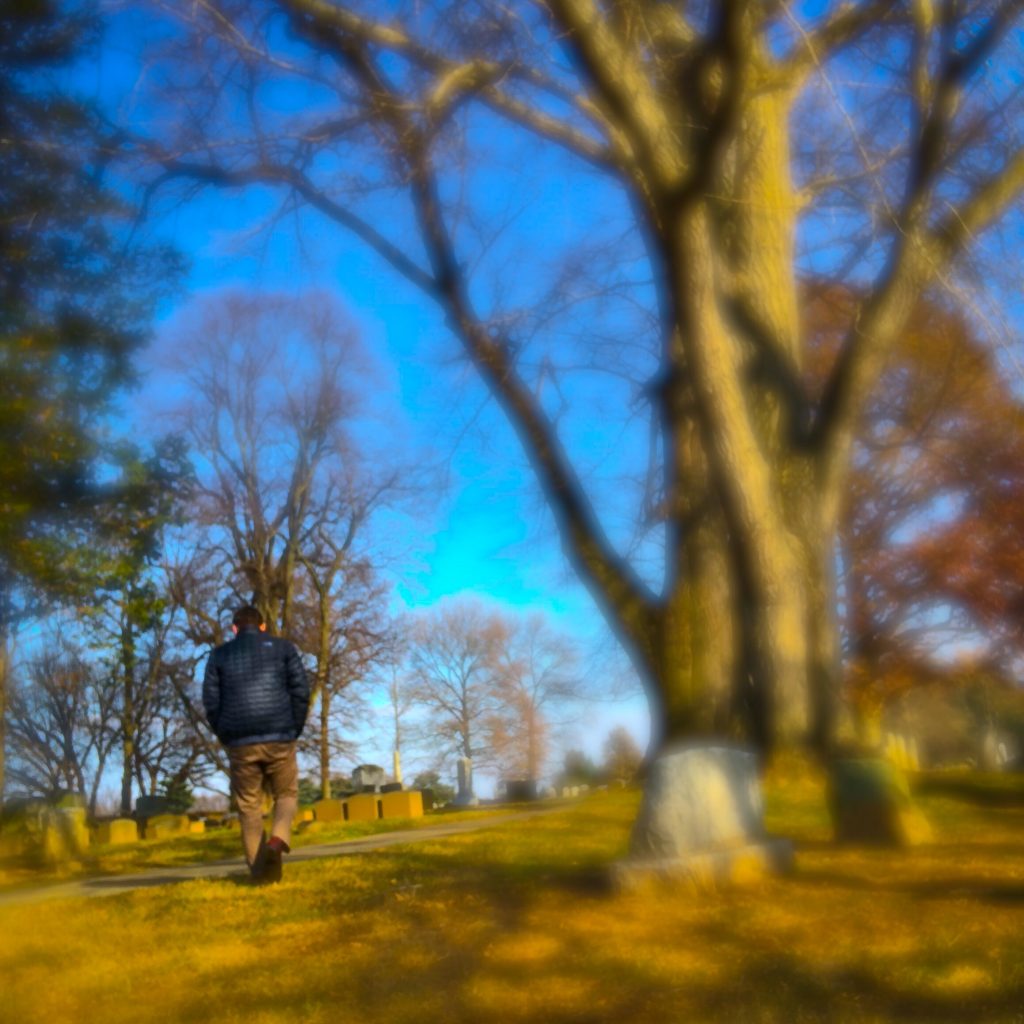
You don’t have to walk away from your dead!
—
The idea used to be that a healthy grieving process ended in detachment. Freud called it decathexis, the removal of emotional and mental energy. Some people call it by other names, like:
Moving on
Getting over it
Letting go
And the most popular term: Closure
—
The goal of grief is NOT closure. In fact, I think closure makes part of us die.
—
I don’t think dead and alive are mutually exclusive. I don’t think it’s either dead or alive. For most of us, it’s both. There’s very real ways that the dead are alive and there’s very real ways that the living are dead. It’s a mixed reality that fluctuates through your journey.
—
Moving on from the people we really love — dead or alive — creates an emptiness, a loneliness, a dead space. It can make the living partially dead. So that closure rarely brings health and peace, but added grief and pain . . . emptiness. Because if closure is the goal, you’re asked to not just bury your loved one once, you’re asked to bury them twice.
—
I think if we allow our love to stay, if we keep that love open and alive, there’s a sense that we will never fully lose them. Because even though they’re dead, their love can remain alive in you.
Finding the energy of our dead during the holiday season
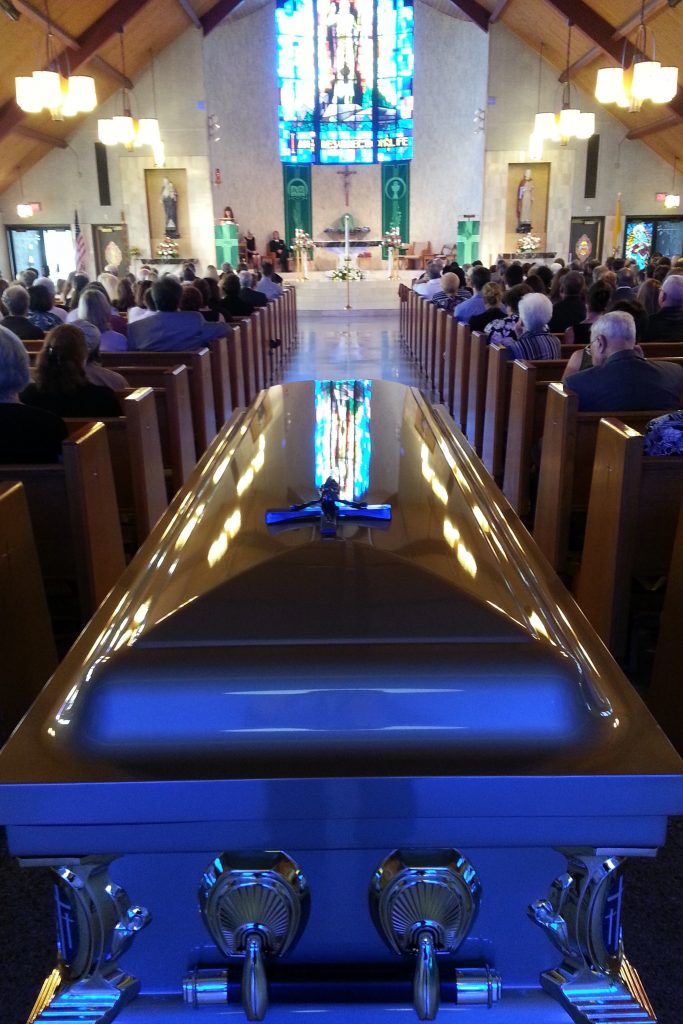
Get ready for a new age-y and weird thought that isn’t nearly as new age-y and weird as it sounds.
—
The energy of our dead surround us in everything we do, especially during the holidays.
—
I know, whenever we talk about “energy” it’s super ambiguous and unquantifiable, and it sounds like something a Californian yogi (who lived in Tibet for a season and has a Reiki session every Wednesday night) would say over a vegan dinner (and no shade towards vegans, yogis, reiki practitioners, or Californians, because I’m practically a vegan, who’s married to a Californian, has a basic yoga practice, and would love to try Reiki).
—
When you make a holiday recipe that was given to you by your late grandmother, that’s the energy of your dead.
—
When you decorate with Christmas ornaments that are family heirlooms, that’s the energy of the dead.
—
When your family gets together for a holiday dinner, THAT is the energy of the dead because each of you are there, each of you exists because you’ve been carried there by your ancestors.
—
It’s natural to think that the energy of our dead only dwells at funerals and cemeteries, but I’d like to think their energy is particularly strong right now . . . during the holiday season. It’s in your cookies, your traditions, your decorations, the side dishes, the love, the giving, the hugs . . . it’s in the season, surrounding us.
—
As the holiday season kicks off, here’s a friendly reminder that the energy of our dead isn’t isolated to funerals and cemeteries, but it’s here, now, during this season. Look for it. Embrace it.
Do you talk to your dead?
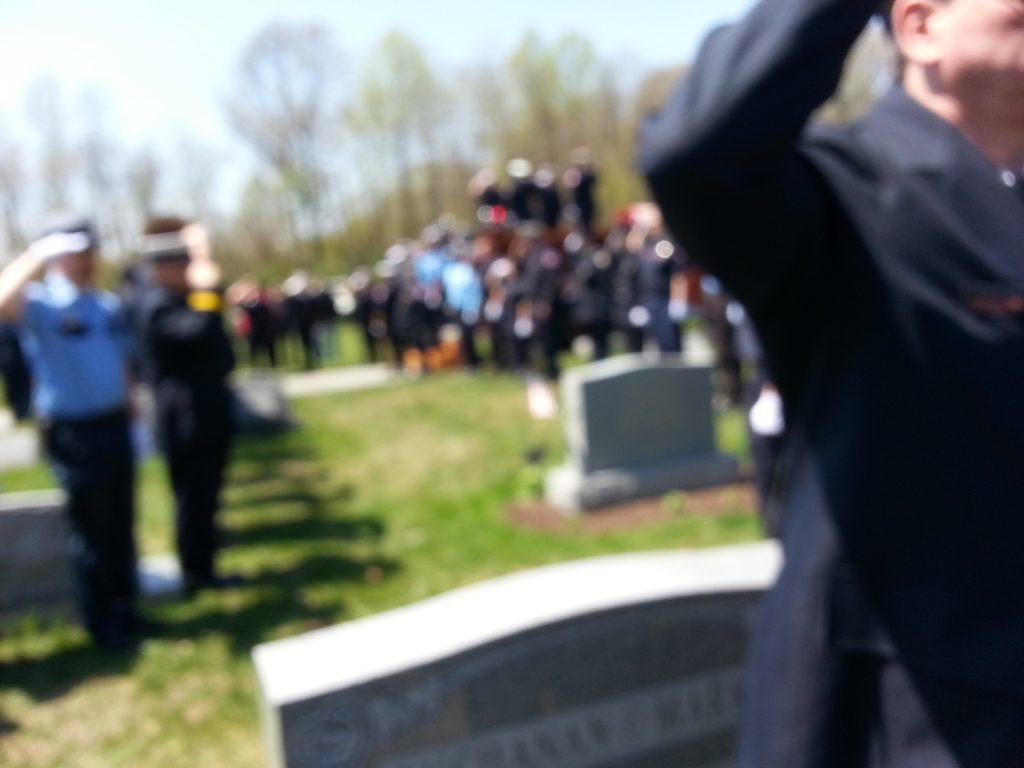
Do you talk to your dead?
—
Soon after my maternal grandfather died in 2006, I was sitting with my grandmother — his widow— and she told me something that I thought was weird, maybe even a little dangerous. She told me that she constantly talks to Pop-pop. Everyday, even every hour.
—
At that time, I was just in the beginning of my “death positivity” journey, and I had this idea in my head that “death acceptance” meant we acknowledged death as final, and stop trying to deny it’s reality through various coping mechanisms, like talking to the dead.
—
I was wrong. It turns out that talking to our dead isn’t a product of death denial, it’s a product of love and relationships.
—
My maternal grandparents had a wonderful relationship, the kind of fairy tales and romance novels. There wasn’t one without the other. When you were in the room with both of them, there was this sense that they were one and yet different . . . almost like they were one person divided into two individuals.
—
So that when Pop-pop died, for my grandmother, it was as though he left and he didn’t. It was though he was dead and alive, absent and present, there and not there because even though he wasn’t there, he was still apart of her because their love remained.
—
I used to think it was weird when people talked to the dead, and I used to think it was even weirder when people claimed their dead talked to them, but not anymore. Love is mysterious, it’s sacred, and it breaks through hard and fast boundaries that we’ve set in place between death and life. Death denial is a real thing, and it’s problematic, but love allows for both death acceptance AND continuing bonds.
—
Do you speak to your dead? Do they speak to you? It’s okay if you answer “no” to both, and it’s okay if you answer “yes.” As long as love mediates your grief experiences, I’m not so sure you can go wrong.
We are living cemeteries
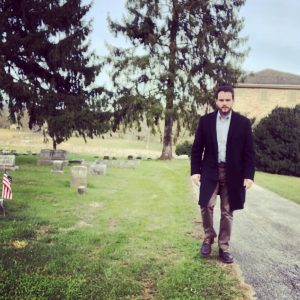
We’re living cemeteries. We’re full of dead people, and their stories live on in our bodies.
–
The cemetery that I’m walking in holds my Quaker ancestors, who came over in the early 1700s to escape persecution and find some respite in William Penn’s “Holy Experiment.”
–
I’m the result of a myriad of my ancestor’s choices that all came together to make me. As long as I’m alive, they’ll never die. And as long as my kids and relatives are alive, my choices — good and bad — will be carried in their bodies.
—
The dead surround us, live in us, integrate themselves into our soil. We are who we are, we live where we live, we speak the way we speak, our character is a reflection of theirs because we are them. We are their hopes, their dreams and desires. —
We’re an individualistic society. Everything is about individual awards, accomplishments, salaries, etc. “It’s mine and I earned it” or “this is who I am” type mantras fill our heads. BUT WE ARE LIVING CEMETERIES.
—
We are not entirely our own. We’ve been carried here — at this moment — by the love, hard work, and heritage of our ancestors. Their love lives in us. Their work carries us. We are theirs, and just like them, one day we’ll become a part of someone else’s future. Our love will continue, and we will be the ones carrying our loved ones.
YOU’RE DOING FUNERALS ALL WRONG!!!
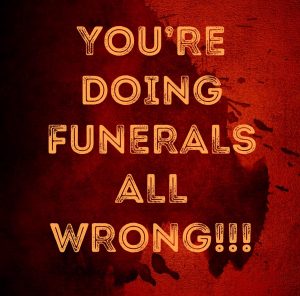
There’s a problem that I want to address. And that problem is dishonorable funerals.
Somewhere along the way, the funeral industry has convinced us (deathcare workers as well), that the ONLY honorable funeral is the traditional funeral (i.e., embalming, casket, full burial and everything that goes with it).
But let me tell you this: if you think an honorable funeral is ONLY a traditional funeral, YOU’RE DOING IT ALL WRONG!!!
An honorable funeral has nothing to do with a viewing. It has nothing to do with caskets. It has nothing to do with a nice cemetery lot. It certainly doesn’t exclude those things, but none of them are necessary.
It’s a dishonorable funeral if you make it all about a traditional funeral and burial.
*****
Somewhere along the way, we’ve become convinced that an honorable funeral is about how much money we spend.
An honorable funeral has nothing to do with how much money you spend.
It’s not about the quality of casket you buy. Or how many flowers flank either side of the casket.
If you think an honorably funeral is about the money and stuff, YOU’RE DOING IT ALL WRONG!!!
*****
Conversely, we’ve become convinced that an honorable funeral is all about how much money you can save.
That the focus should be on frugality. On not falling into the traps laid by the funeral industry.
On cremation. And simplicity. And dying as quietly and silently as possible.
If you think a funeral is about beating the system, YOU’RE DOING IT WRONG!!!
*****
It’s about the people that come to the funeral, we think.
But an honorable funeral has never had anything to do with numbers.
It has nothing to do with how many or how few people come to it.
If you get caught up in WHO is going to be at a funeral, YOU’RE DOING IT WRONG!!!
*****
Somewhere along the way, we’ve been convinced that an honorable funeral is all about the religious element.
But if you think honorable funerals are about which church hosts the funeral, what pastor or priest is doing the eulogy, and which religious cemetery you’re being buried at, YOU’RE DOING IT ALL WRONG!!!
An honorable funeral is so much more than the religious element.
*****
Somewhere along the way, we’ve become convinced that an honorable funeral is about how environmentally friendly we can make it.
An honorable funeral is one that honors the earth. That you can’t have an honorable funeral without a biodegradable casket and a green burial.
I want my body to go green when I die, but if you think a funeral is about your footprint, YOU’RE DOING IT ALL WRONG!!!
*****
Because any funeral that’s honorable is about the deceased. Sometimes honoring the deceased
can involve spending money,
it can involve being frugal,
it can involve a traditional funeral,
it can involve being environmentally friendly (and this is an option we all should know about),
it can involve your friends and extended family,
and it can involve a religious element or none at all.
BUT IF IT’S ABOUT ANY ONE OF THOSE THINGS, AND YOU LOSE FOCUS ON THE DECEASED, YOU’RE DOING IT WRONG!
Funerals are simple. Really. It’s about us expressing our love for our dead. Cheesy, I know. But when we take the time to acknowledge a death and express our love towards the dead (however that may look), you’re doing it right. Because acknowledging and expressing our love for our loved ones sits at the heart of honor. And acknowledging and expressing our love for our dead loved ones sits at the heart of an honorable funeral.
*****
If you like my writing, consider buying my 2017 Nautilus Book Award Gold Winner, Confession of a Funeral Director (click the image to go to the Amazon page):
